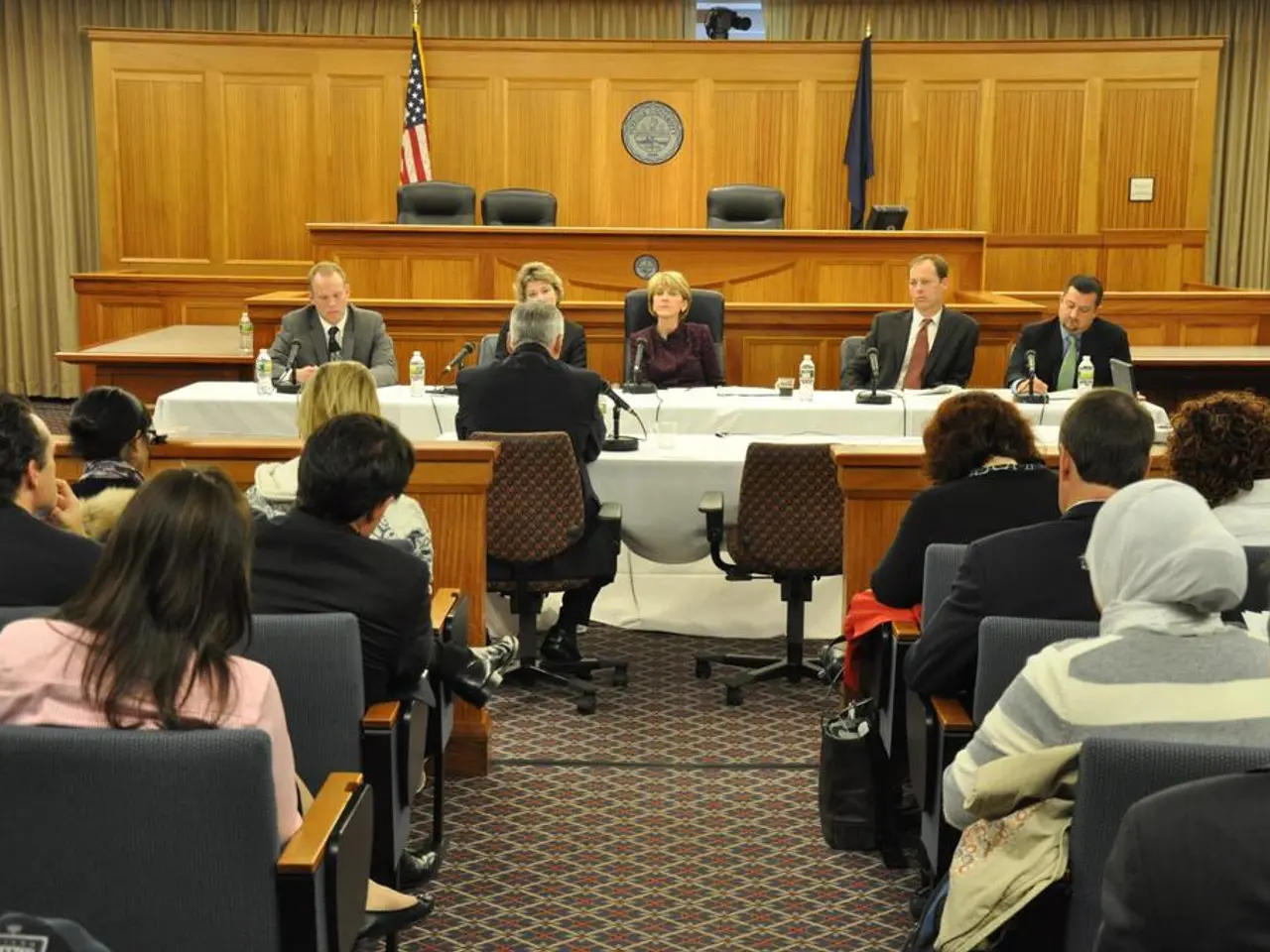Slimmed Down Intelligence Committee Leaves Opposition Seats Vacant in Bundestag
Reichinnek and AFDS's parliamentary terms come to an end due to election losses
In a surprising turn of events, the Parliamentary Control Panel (PKGr), responsible for overseeing Germany's federal intelligence agencies, is losing a bit of its diversity. This shift occurs after the recent election process, where one opposition representative, Green politician von Notz, is all that remains. Neither the Left party's faction leader Heidi Reichinnek nor the two AfD candidates managed to secure the necessary majority.
The Bundestag has long established the PKGr, which, along with other responsibilities, ensures that federal intelligence agencies are kept in check. A panel of MPs, nominated by their respective factions, is elected to the committee, but this time, Reichinnek and the two AfD candidates fell short, garnering just 260, 127, 121, and 121 votes respectively.
Known for handling sensitive information under strict secrecy within a soundproof room, the PKGr plays a crucial role in maintaining the democratic checks and balances on intelligence activities. The reduced scope of the committee might have a significant impact on the depth and breadth of its oversight efforts.
Previously, the PKGr comprised 13 members, but it is now set to become a more compact team of 9. The North Rhine-Westphalian CDU MP Marc Henrichmann will be the committee's chair, while other representatives come from the Union, SPD, and Greens.
Political Infighting and Warning Signs
The Left party sharply criticized the non-election of Reichinnek, whom they deemed a stalwart across party lines. Soeren Pellmann, Co-faction leader of the Left, claimed that the Union had turned the committee's election into a "party and personnel political power game." The Left party accused the Union of disregarding democratic opposition and voiced concerns about the future, questioning how Union would secure a two-thirds majority without the Left's presence.
Politicians from The Greens had warned in recent weeks that the proposed reduction in the PKGr might lead to decision-making incapacity. Responding to these warnings, the Greens were the only faction to abstain during the vote on establishing the committee. This decision guarantees that the required majority for decision-making is based on the theoretical size of the committee rather than its actual number, ensuring that the committee operates effectively even in the event of extended absences due to illness or other reasons.
The New PKGr and its Challenges
The PKGr, responsible for reviewing potential terrorist threats, upholding constitutional values, and handling espionage cases, will face a significant challenge in maintaining its due diligence with fewer members. The reduced workforce may lead to complexity in scrutinizing intelligence activities and holding federal intelligence agencies accountable. The reduced PKGr has only six members as opposed to the previous number of 13.
Interestingly, unlike committees in the Bundestag, the PKGr continues to meet regardless of German elections. Politicians no longer in the Bundestag, due to their party failing to exceed the 5% electoral threshold or other reasons, can still participate in PKGr meetings. Recent examples include FDP politicians Konstantin Kuhle and Alexander Müller.
- German Bundestag
- Intelligence Services
- AfD
- The Left
- Alliance 90/The Greens
- Union faction
[1] The reduction in PKGr members, in part, reflects the overall changes in party representation due to the 2025 German federal election reforms that reduced the total number of Bundestag seats from 736 to 630. Parties with weaker representation naturally have fewer members elected to the PKGr.
- The ongoing political discord within the Bundestag, as demonstrated by the non-election of Heidi Reichinnek from The Left party, raises concerns about the future of the parliamentary committee's employment policy, particularly in maintaining a balanced representation from various political factions.
- The reduced size of the Parliamentary Control Panel (PKGr) in EC countries, while addressing the changes in party representation due to the 2025 German federal election reforms, could lead to challenges in the implementation of effective employment policy within the committee, given the increased responsibility per member in ensuring democratic checks and balances on intelligence activities.





